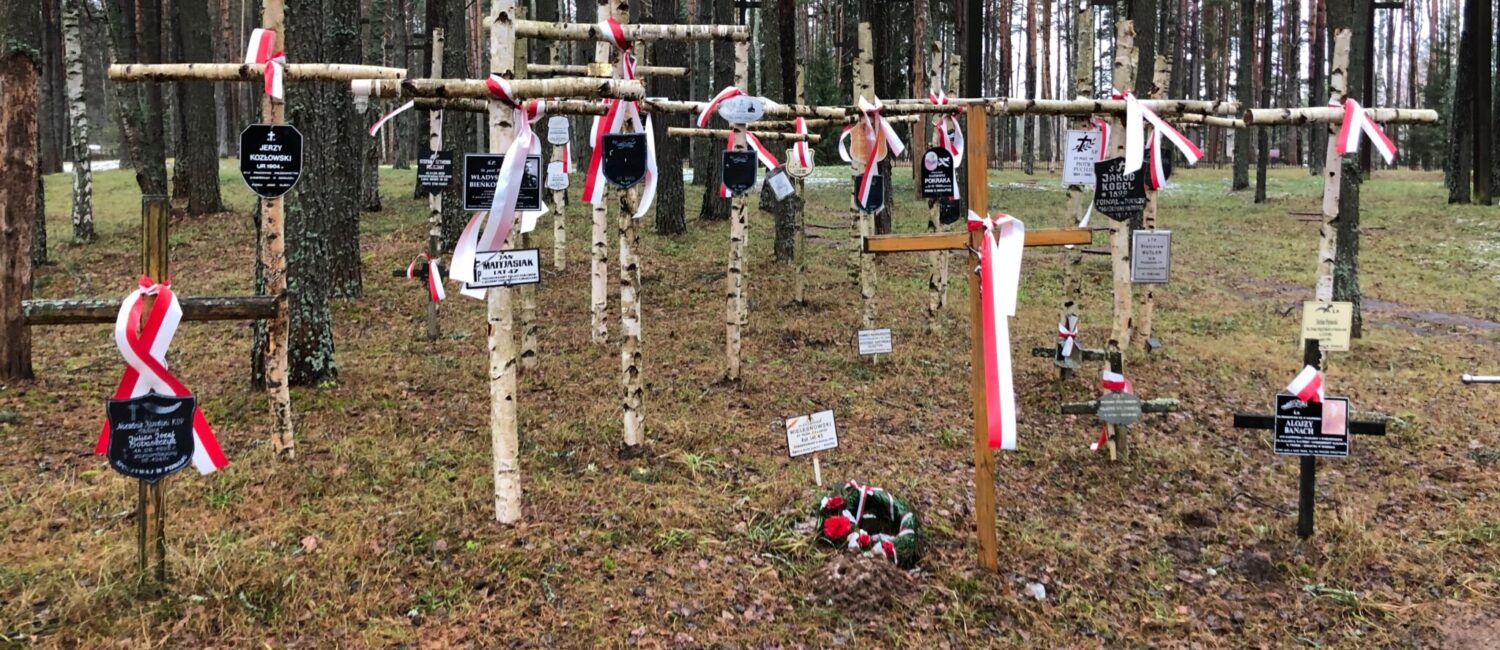To commemorate 80th anniversary of the Katyn Genocide, the Polonia Institute announces 2020 Historical Essay Scholarship Competition on the international significance of the denial of justice to the victims of Katyn .
To this day, Katyn remains the greatest unpunished crime of World War II. On the 80th anniversary of the mass extermination of Polish nationals by the Soviet Union in Katyn and other locations throughout the USSR and mass deportations of their families, Polonia Institute encourages the study of events leading up to the denial of justice to the victims of Katyn, its causes, consequences, and possible remedies.
In the spring of 1943, the German army advancing east stumbled upon mass death pits containing bodies of Polish officers in the Katyn forest near Smolensk. The Polish government in London had been searching for thousands of officers taken prisoners in 1939. On April 13, 1943, the Germans announced that the Soviet Union murdered in Katyn 4,421 Polish officers held by USSR as prisoners-of-war.
In September 1943, the Soviets recaptured the Katyn mass murder site and immediately implemented the cover-up operation. On January 10, 1944, NKVD led by V. Merkulov and S. Kruglov issued a preliminary report concluding that the Polish officers were murdered by the Germans. Subsequently, the Soviets formed the Extraordinary State Commission for Ascertaining and Investigating Crimes Perpetrated by the German-Fascist Invaders. This commission, headed by Nikolai Burdenko, MD, confirmed NKVD’s findings. The Nuremberg Tribunal considered the Burdenko Report but declined to rule on the Katyn atrocity.
In 1951, the US Congress formed the Select Committee to Conduct an Investigation and Study of the KATYN Forest Massacre. Chaired by Rep. Ray Madden, this committee concluded on December 22, 1952, that the Poles were murdered by the Soviet NKVD in the spring of 1940. The Madden Committee recommended that the United States submit the Katyn case to the General Assembly of the United Nationals and to the International World Court of Justice.
The mastermind of Katyn, Joseph Stalin, died on March 5, 1953, on the day marking the 13th anniversary of signing the Katyn execution order. His death renewed hopes in the United Sates for better relationship with Russia. Consequently, no action was ever taken on the recommendations of the Madden Committee.
No justice was ever served for Katyn in Poland either. After the war, Poland ended up under Soviet control. The Soviet-imposed government covered up the Katyn atrocity. The communists who controlled the Polish media and academia brutally censored any mention of Katyn. The families of the Katyn victims and those asking questions about this atrocity were persecuted. Until 1990, any mentioning of Katyn in Poland resulted in persecution.
On April 13, 1990, the USSR formally admitted that the Soviet secret police was responsible for the Katyn atrocity. In 1992, the special Soviet file with Order dated March 5, 1940 to murder 25,700 Poles was disclosed in part thanks to the efforts of Vladimir Bukovski. Orders for mass deportations of the Polish citizens from conquered lands were also disclosed. However, the Russian investigation into the Katyn Operation was a sham. No one was ever found guilty of the Katyn murders. To the contrary, 125 NKVD murderers received monetary awards for efficiently annihilating the Poles.
More information on Polonia Institute website.





